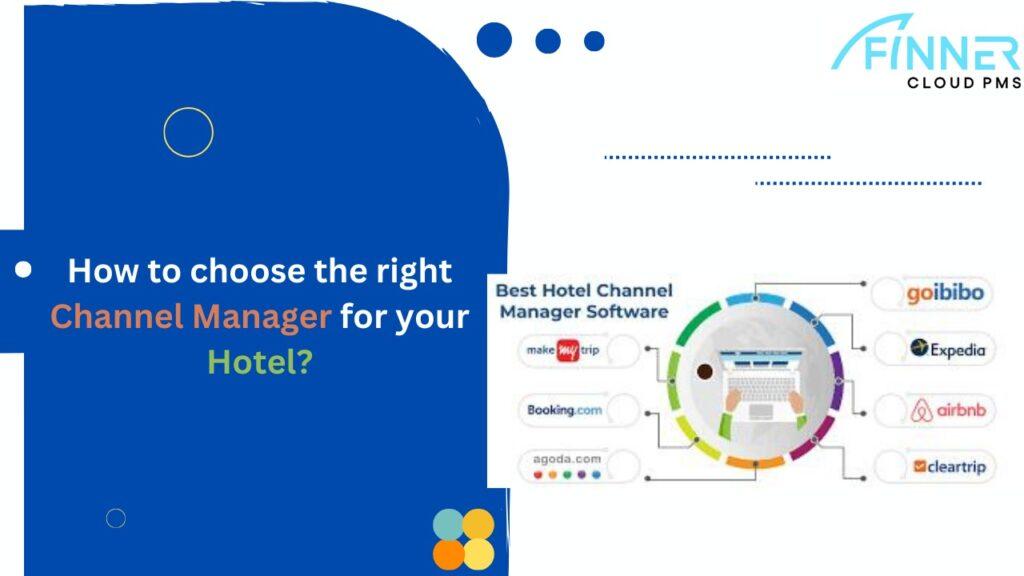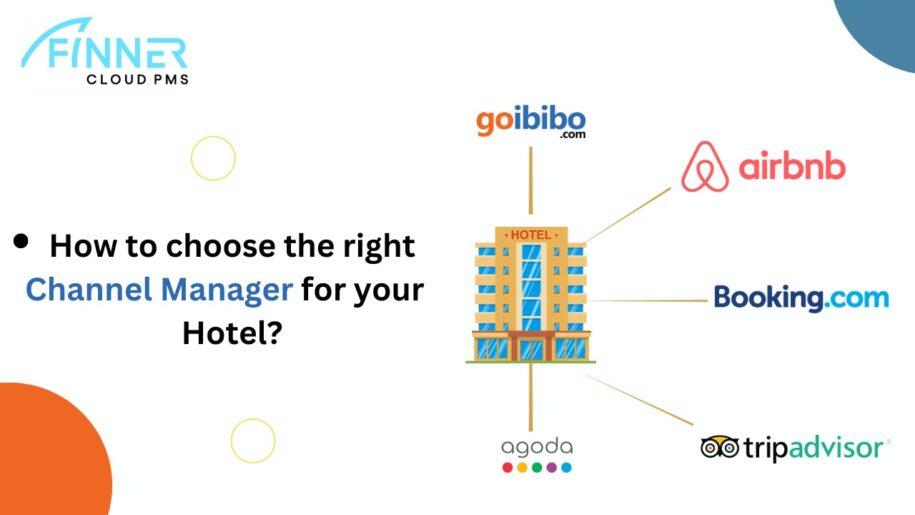Introduction
In the ever-evolving landscape of the hospitality industry, effective online distribution is crucial for a hotel’s success. A pivotal component of this distribution strategy is a robust channel manager. Choosing the right channel manager can significantly impact a hotel’s bookings, revenue, and overall efficiency. This blog aims to guide hoteliers through the intricate process of selecting the most suitable channel manager for their property.
Understanding the Role of a Channel Manager
Before delving into the selection process, it’s essential to grasp the role of a channel manager. In simple terms, a channel manager is a tool that facilitates the seamless distribution of a hotel’s room inventory across various online travel agencies (OTAs), global distribution systems (GDS), and other booking channels. It acts as a centralized hub, preventing overbookings and ensuring real-time updates on room availability and rates.
Key Factors to Consider
Integration Compatibility: A critical aspect of choosing the right channel manager is ensuring seamless integration with your property management system (PMS). The PMS and channel manager should work in tandem, allowing for automatic updates on reservations, availability, and rates across all connected channels. This integration minimizes the risk of errors and saves time on manual data entry.
Channel Network: Assess the channel manager’s connectivity with a wide range of distribution channels, including popular OTAs, GDS, and even direct booking engines. A diverse and extensive channel network ensures maximum visibility for your hotel, attracting a broader audience and increasing the chances of bookings.
Real-time Updates: Opt for a channel manager that provides real-time updates. This ensures that changes in room availability or pricing are immediately reflected across all connected channels. This real-time synchronization prevents overbookings, enhances customer satisfaction, and improves operational efficiency.
User-Friendly Interface: A user-friendly interface is crucial for daily operations. The channel manager should be intuitive, allowing staff members to easily navigate and manage bookings. A complex system might lead to errors and delays, negatively impacting the guest experience and overall efficiency.
Rate Management: Effective rate management is a key feature of a reliable channel manager. Look for a tool that allows dynamic pricing, enabling you to adjust rates based on demand, seasons, and market trends. This flexibility ensures that your hotel remains competitive and maximizes revenue.
Automated Reporting: Reporting and analytics are essential for assessing the performance of your distribution strategy. A good channel manager should provide detailed reports on bookings, revenue, and channel performance. These insights empower hoteliers to make informed decisions and fine-tune their strategies.

Support and Training: Prioritize a channel manager that offers comprehensive support and training. The transition to a new system can be challenging, and having access to responsive customer support and training resources can make the onboarding process smoother. Check for the availability of tutorials, webinars, and a dedicated support team.
Cost and Value: While cost is undoubtedly a crucial factor, it’s equally important to assess the value offered by the channel manager. Consider the features and benefits provided, and evaluate whether they align with your hotel’s specific needs. A higher upfront cost might be justified if the system enhances efficiency and boosts revenue in the long run.
Scalability: Choose a channel manager that can grow with your business. As your hotel expands, the channel manager should accommodate an increasing number of rooms, channels, and complexities. Scalability is vital to ensure that your distribution strategy remains effective as your property evolves.
Security and Reliability: Security is paramount when dealing with sensitive guest information. Ensure that the channel manager adheres to industry standards for data protection. Additionally, assess the reliability of the system by researching reviews and testimonials from other hoteliers who have used the platform.
Conclusion
Selecting the right channel manager for your hotel is a strategic decision that requires careful consideration of various factors. By prioritizing integration compatibility, channel network, real-time updates, user-friendly interface, rate management, automated reporting, support and training, cost and value, scalability, and security, hoteliers can make an informed choice that aligns with their business goals.
Remember that the hospitality industry is dynamic, and technology continues to evolve. Regularly reassess your channel manager to ensure it remains effective in meeting your hotel’s distribution needs. With the right channel manager in place, your hotel can navigate the competitive landscape, maximize online visibility, and achieve sustained success in the digital era.

